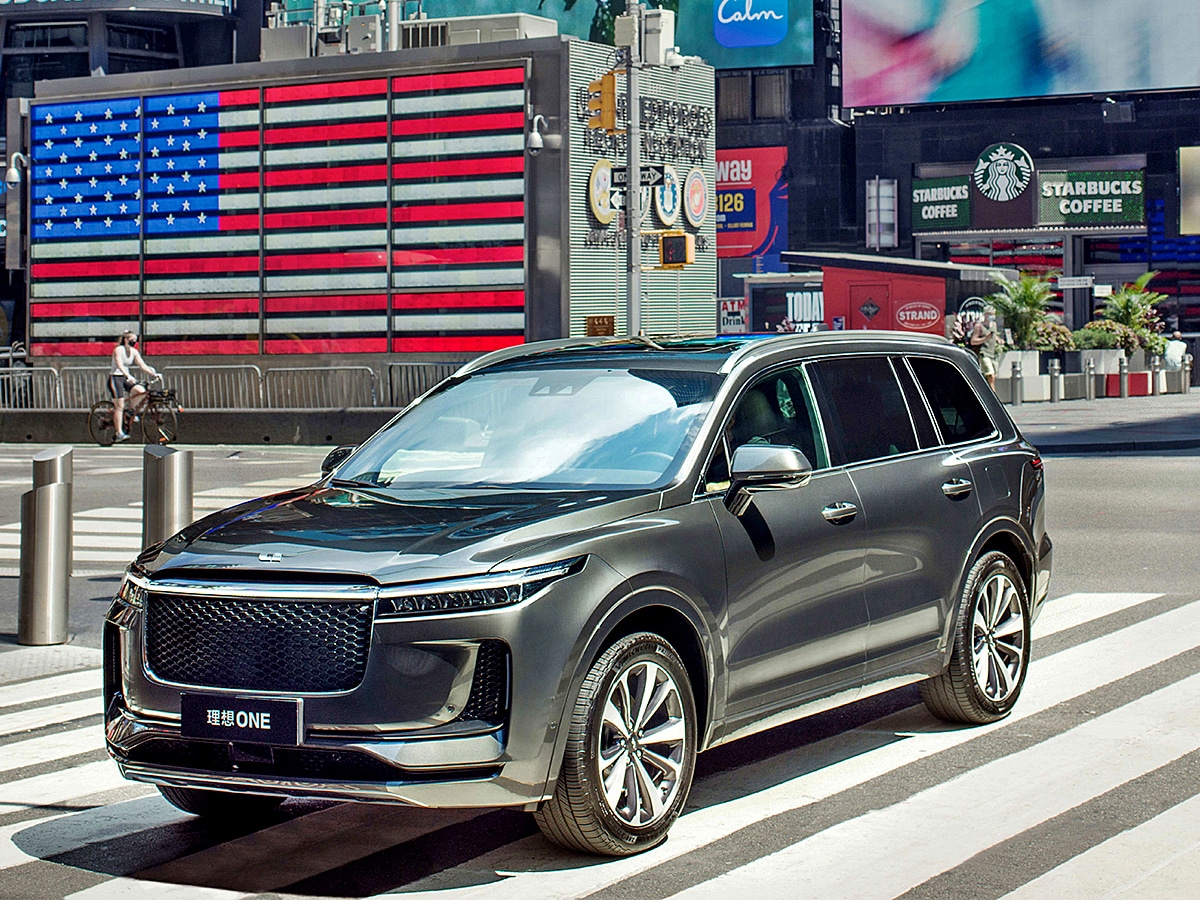After accelerating to an all-time high of $47.70 back in November, Chinese electric vehicle (EV) manufacturer Li Auto’s [LI] share price stalled, falling to a year-to-date low of $15.98 at the start of May.
Since then, Li Auto’s share price has recovered somewhat, climbing 15.7% to $20.81 on 24 May. Although it is up just short of 80% from the $11.50-a-share at which it listed in July 2020 for its Nasdaq IPO, but Li Auto’s share price is down 27.8% so far this year.
There are a few reasons Li Auto’s share price has pulled back in recent months. One is that the company announced a $750m convertible debt offering in April to expand its research and development. This led to concerns among existing shareholders about dilution.
Another factor is the ongoing semiconductor shortage, which has put pressure on automotive supply chains and, in turn, Li Auto’s share price. This has helped turn the sentiment that pushed EV stocks to such electrifying highs in 2020 into something more negative.
One example of this faltering enthusiasm is the KraneShares Electric Vehicles and Future Mobility Index ETF [KARS], which holds Li Auto. The ETF returned 70.24% last year, while its year-to-date daily total return so far this year was 1.32% on 25 May, according to Yahoo Finance data. Meanwhile, the Amplify Lithium & Battery Technology ETF [BATT], which holds a number of EV makers including Li Auto, as well as lithium-ion battery producers, has a year-to-date daily total return of -5.75%, versus an annual return of 44.32% in 2020.
As Li Auto gears up for its Q1 2021 earnings report on 26 May, what can investors expect?
Past performance
The company’s full revenue for fiscal 2020 was RMB9.46bn, up 3,226% on the RMB284.4m posted in 2019. There were 32,634 vehicles delivered over the 12 months — 14,464 in the fourth quarter alone.
The guidance for Q1 2021 is for revenue to be between RMB2.94bn and RMB3.22bn, which would represent a year-over-year increase of 245.9% to 278.8% on the same period in 2020.
RMB3.22 billion
Upper guidance for Li Auto's revenue in Q1 2021
During its Q4 2020 earnings call, the company forecast that it would shift between 10,500 and 11,500 vehicles in the three months to the end of March — up from 2,896 units sold in Q1 2020. A March delivery update indicated that it had actually sold 12,579 units in the quarter, up 334.4% on the year-ago period, while a May update announced that 5,539 more had been sold during April, up 111.3% from April 2020. Total deliveries to date stood at 51,715 units at the end of April.
The road ahead
Although Li Auto hasn’t given any indication that the semiconductor shortage is affecting the number of vehicles rolling off the production line, it’s still possible. Fellow Chinese EV maker Nio [NIO] admitted in March that the shortage would force a 25% reduction in its second-quarter production capacity — from 10,000 vehicles to 7,500.
Yanan Shen, president of Li Auto, said during the Q4 2020 earnings call that the Q1 delivery guidance was “relatively conservative”. This week’s earnings call should provide insight into future delivery targets and whether there are any short-term production concerns
Unlike Nio and another Chinese rival XPeng [XPEV], Li Auto currently has just one model available: the Li One, a plug-in hybrid luxury SUV. However, a pure electric SUV model is set to be launched in 2022.
Li Auto expects consumer appetite for EVs and green technology will drive future growth. China’s pledge to be carbon neutral by 2060 will also be a tailwind.
China's pledge to be carbon neutral by 2060 will also be a tailwind
As the preference for EVs continues to grow, more competitors are likely to enter the market. Analysts expect those companies that were early movers will be the ones that come out on top.
Edison Yu, an analyst at Deutsche Bank, wrote in a recent note to clients seen by Capital.com: “Ultimately, we believe the majority of efforts from start-ups will fail and many legacy carmakers will become irrelevant, but in the process of getting to the endgame of a much more consolidated market, we will witness several years of creative destruction where the winners will have to constantly innovate to maintain their position.”
Yu has assigned the stock a hold rating and $35 price target, which implies a 68.2% rise on Li Auto’s closing price on 24 May. It’s one of 12 Wall Street ratings in total, according to MarketBeat: one strong buy, nine buy, and two hold.
Disclaimer Past performance is not a reliable indicator of future results.
CMC Markets is an execution-only service provider. The material (whether or not it states any opinions) is for general information purposes only, and does not take into account your personal circumstances or objectives. Nothing in this material is (or should be considered to be) financial, investment or other advice on which reliance should be placed. No opinion given in the material constitutes a recommendation by CMC Markets or the author that any particular investment, security, transaction or investment strategy is suitable for any specific person.
The material has not been prepared in accordance with legal requirements designed to promote the independence of investment research. Although we are not specifically prevented from dealing before providing this material, we do not seek to take advantage of the material prior to its dissemination.
CMC Markets does not endorse or offer opinion on the trading strategies used by the author. Their trading strategies do not guarantee any return and CMC Markets shall not be held responsible for any loss that you may incur, either directly or indirectly, arising from any investment based on any information contained herein.
*Tax treatment depends on individual circumstances and can change or may differ in a jurisdiction other than the UK.
Continue reading for FREE
- Includes free newsletter updates, unsubscribe anytime. Privacy policy





